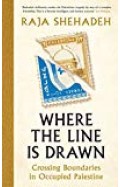What Does Israel Fear From Palestine?
By: Raja Shehadeh
-
Rs 4,045.50
- Rs 4,495.00
- 10%
You save Rs 449.50.
Due to constant currency fluctuation, prices are subject to change with or without notice.
When apartheid in South Africa ended in 1994, dismantled by internal activism and global pressure, why did Israel continue to pursue its own apartheid policies against Palestinians? In keeping with a history of antagonism, the Israeli state accelerated the establishment of settlements in the Occupied Territories as extreme right-wing voices gained prominence in government, with comparatively little international backlash.
Condensing this complex history into a lucid essay, Raja Shehadeh examines the many lost opportunities to promote a lasting peace and equality between Israelis and Palestinians. Since the creation of Israel in 1948, known to Palestinians as the Nakba, or catastrophe, each side’s perception of events has strongly diverged. What can this discrepancy tell us about Israel’s undermining of a two-state solution? And will the current genocide in Gaza finally mark a shift in the world’s response?
With graceful, haunting prose, Shehadeh offers insights into a defining conflict that could yet be resolved.
When apartheid in South Africa ended in 1994, dismantled by internal activism and global pressure, why did Israel continue to pursue its own apartheid policies against Palestinians? In keeping with a history of antagonism, the Israeli state accelerated the establishment of settlements in the Occupied Territories as extreme right-wing voices gained prominence in government, with comparatively little international backlash.
Condensing this complex history into a lucid essay, Raja Shehadeh examines the many lost opportunities to promote a lasting peace and equality between Israelis and Palestinians. Since the creation of Israel in 1948, known to Palestinians as the Nakba, or catastrophe, each side’s perception of events has strongly diverged. What can this discrepancy tell us about Israel’s undermining of a two-state solution? And will the current genocide in Gaza finally mark a shift in the world’s response?
With graceful, haunting prose, Shehadeh offers insights into a defining conflict that could yet be resolved.
Where The Line Is Drawn: Crossing Boundaries In Occupied Palestine
By: Raja Shehadeh
Rs 2,252.50 Rs 2,650.00 Ex Tax :Rs 2,252.50
When the Bulbul Stopped Singing - A Diary of Ramallah Under Siege
By: Raja Shehadeh
Rs 85.00 Rs 100.00 Ex Tax :Rs 85.00
WE COULD HAVE BEEN FRIENDS MY FATHER A
By: Raja Shehadeh
Rs 2,965.50 Rs 3,295.00 Ex Tax :Rs 2,965.50
Forgotten: Searching for Palestine’s Hidden Places and Lost Memorials
By: Raja Shehadeh
Rs 4,595.00 Ex Tax :Rs 4,595.00
Zubin Mehta: A Musical Journey (An Authorized Biography)
By: VOID - Bakhtiar K. Dadabhoy
Rs 892.50 Rs 1,050.00 Ex Tax :Rs 892.50
The Origins of Political Order From Prehuman Times to the French RevolutioN
By: Francis Fukuyama
Rs 4,045.50 Rs 4,495.00 Ex Tax :Rs 4,045.50
Manning Up: How the Rise of Women Has Turned Men into Boys
By: Kay Hymowitz
Rs 845.75 Rs 995.00 Ex Tax :Rs 845.75
The Obama Syndrome: Surrender At Home War Abroad
By: Tariq Ali
Rs 1,100.75 Rs 1,295.00 Ex Tax :Rs 1,100.75
The Quest For Meaning: Developing A Philosophy Of Pluralism
By: Tariq Ramadan
Rs 1,185.75 Rs 1,395.00 Ex Tax :Rs 1,185.75
No similar books from this author available at the moment.
Marriage: A Keepsake Hardcover – 1 Jun. 1997
By: Helen Exley
Rs 1,657.60 Rs 4,144.00 Ex Tax :Rs 1,657.60
Zubin Mehta: A Musical Journey (An Authorized Biography)
By: VOID - Bakhtiar K. Dadabhoy
Rs 892.50 Rs 1,050.00 Ex Tax :Rs 892.50
Where The Line Is Drawn: Crossing Boundaries In Occupied Palestine
By: Raja Shehadeh
Rs 2,252.50 Rs 2,650.00 Ex Tax :Rs 2,252.50
When the Bulbul Stopped Singing - A Diary of Ramallah Under Siege
By: Raja Shehadeh
Rs 85.00 Rs 100.00 Ex Tax :Rs 85.00
WE COULD HAVE BEEN FRIENDS MY FATHER A
By: Raja Shehadeh
Rs 2,965.50 Rs 3,295.00 Ex Tax :Rs 2,965.50
Forgotten: Searching for Palestine’s Hidden Places and Lost Memorials
By: Raja Shehadeh
Rs 4,595.00 Ex Tax :Rs 4,595.00



















-120x187.jpg?q6)





-120x187.jpg?q6)










